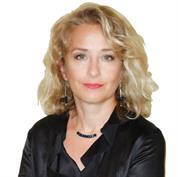Technology radically changes the way we live and work. In this environment, creativity has become the engine for growth and prosperity.
By 2020 creativity will be a top skill sought by employers. Children born today will have jobs that demand high level of creative thinking.[i] There is, therefore, a significant need to learn how creativity can be engendered in children, our future workforce.
Too many young people do not reach their full potential because their creativity is neglected during the first years of their lives when imagination and curiosity is rife. They struggle to adapt and cope with basic challenges, understand concepts and apply them in different situations, plan and achieve goals. This can lead to low productivity and issues with self-esteem and employment in their adulthood. Fostering creativity from an early age helps children to remain creative throughout life and to grow into successful professionals, entrepreneurs and leaders.
Parents must learn how to facilitate creativity of young children. They should dedicate their direct time and attention to it. Relying only on the traditional learning methods can disconnect children from the skills needed to function in today’s world.
How do parents engender creativity in children?
Positive beliefs about creativity
Parents should begin by developing positive beliefs about creativity. The misconception that creativity is ‘art’ and ‘for artists’ alone, that it cannot be learned, or does not impact prosperity and productivity in the same way as literacy and numeracy – is long outlived.
Creativity - the ability to generate and implement new competitive solutions - is the intelligence that applies across all spheres of human endeavour. It is rooted in the capacity to connect information across knowledge. Creative people synthesize concepts that seem, at first glance, wholly unrelated. It is also the ability to think visually. Creativity comes easy to people who are adept in the visual skills (observation and visualisation).
In terms of young children, to be creative means to be effective, resourceful, resilient and confident. Creative, children overcome obstacles, navigate changes, have high self-esteem and are more motivated to learn.
Learning activities
Children build creativity through action. They must have practical opportunities for playing out ideas and venturing ‘outside the box'. Parents should learn what activities best stimulate creativity.
Art, i.e. visual art, music and performance, is the most effective way to foster creative thinking. Art provides children with a first-hand experience to experiment, innovate and invent. Through making simple music, drawings, paintings, collages, and toys, modelling out of clay and dough, decorating elements of clothes, role-playing and acting ‘as if', dressing up, dancing, singing, telling stories, playing puppetry and improvising, children explore techniques, materials, colours, textures and sounds, and connect those to concepts, ideas and values. They develop visual thinking, hand-eye coordination, language and the whole-body motor control. According to numerous studies, children who experience rich-in-art education display higher academic scores and stronger leadership than children with little or no art practice; as adults, they have jobs with higher salaries and responsibilities.[ii]
Learning environment
While providing the right activities is essential to creativity-learning, they alone are not enough. Creativity-learning is also about the parent-child dynamics - the way parents interact with children during the activities and on a day-to-day and minute-by-minute basis. The failure to get the right dynamics can impede children’s creativity. Parents should learn how to establish and build the right environment for the effective learning.
The activities should take place in the atmosphere of friendliness, openness, and total suspension of judgement. Parents encourage children to investigate, experiment and change things. They ask the open-ended questions such as 'what can be' and 'what if' and motivate children to come up with as many ideas as possible (learning divergent thinking). They must allow children adequate time to develop their creative responses and provide good discipline and work space. They should not belittle children’s opinions, and instead praise curiosity, 'crazy' ideas and making mistakes. Good humour and playfulness are essential. Parents need to support children’s ‘creative character’ – courage, independent thinking, risk-taking, and ‘can-do' attitude. And whether or not children succeed in the activities, parents should always give them their generous praises for trying.
By believing in creativity and learning how to facilitate it in young children, parents can maximise children’s potential and ensure children meet the 21st century challenges with confidence and success.
Alla Tkachuk FRSA is a creativity advocate and educator, the Founder of the creativity education charity MASK and Creativity-Gym. If you would like to get in touch, please email contact@mobileartschoolinkenya.org
Resources:
[i] ‘UK Economic Outlook’, PwC, 2017
‘The Future of Jobs’, World Economic Forum, 2016
‘The Right Combination’, CBI/Pearson Education and Skills Survey 2016
[ii] 'The Arts and Achievement in At-Risk Youth', The National Endowment for the Arts, 2012
R. Deasy. 'Critical Links: Learning in the arts and students academic and social development’, Arts Education Partnership, 2002
'2012 College-Bound Seniors: Total Group Profile Report’, The College Board, 2012
‘Living the Arts Through Language and Learning: a report on community-based Youth Organisations’, Americans For The Arts, 1998
'Arts and Employability' report, The Scottish Executive Social Research, 2006
'Reinvesting in Arts Education: Winning America's Future Through Creative Schools' report, The US President’s Committee on the Arts and the Humanities (PCAH), 2012
Related articles
-
The Independent Music Conversation: Creating a Network to Support Independent Grassroots Music
Dr Sue Oreszczyn Dr Neil March
FRSA Dr Sue Oreszczyn and FRSA Dr Neil March invite fellows at the RSA who would like to join them in a conversation about how to support grassroots independent artists and their environment.
-
Connecting young people in London with cultural opportunities
Olivia Finn
Young people growing up in London today are faced with a paradox that defines many of the world’s most prosperous cities.
-
Five reasons to take part in the 2018-19 RSA Pupil Design Awards
Sam Grinsted
Sam Grinsted introduces the RSA Pupil Design Awards competition with a look at why schools should take part this year.




Be the first to write a comment
Comments
Please login to post a comment or reply
Don't have an account? Click here to register.